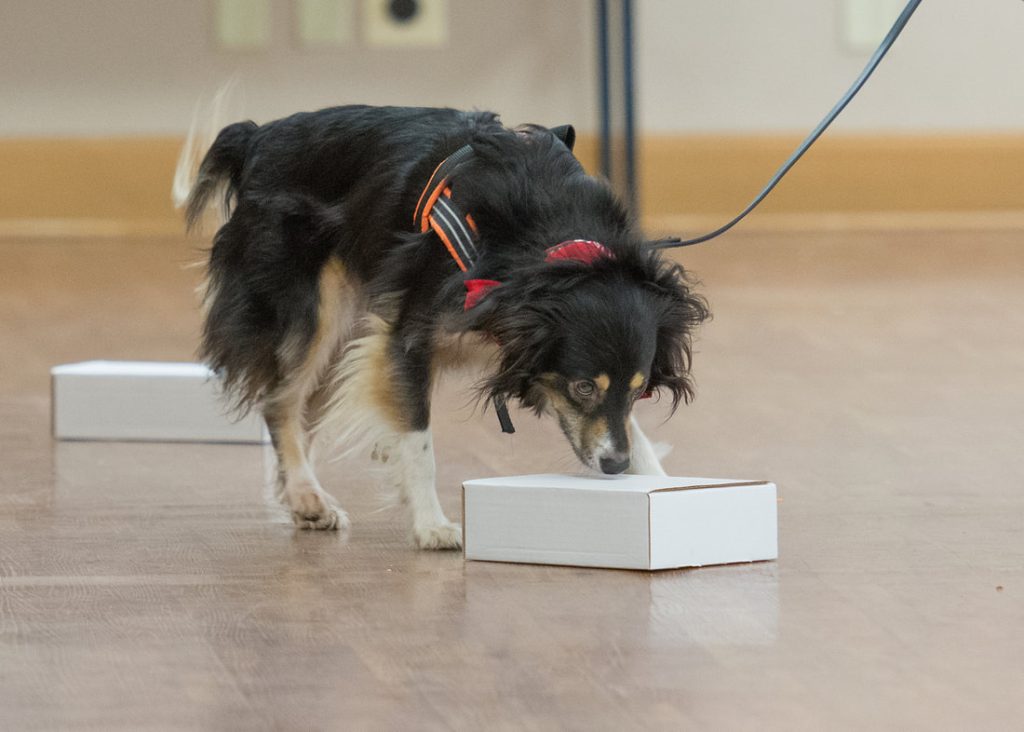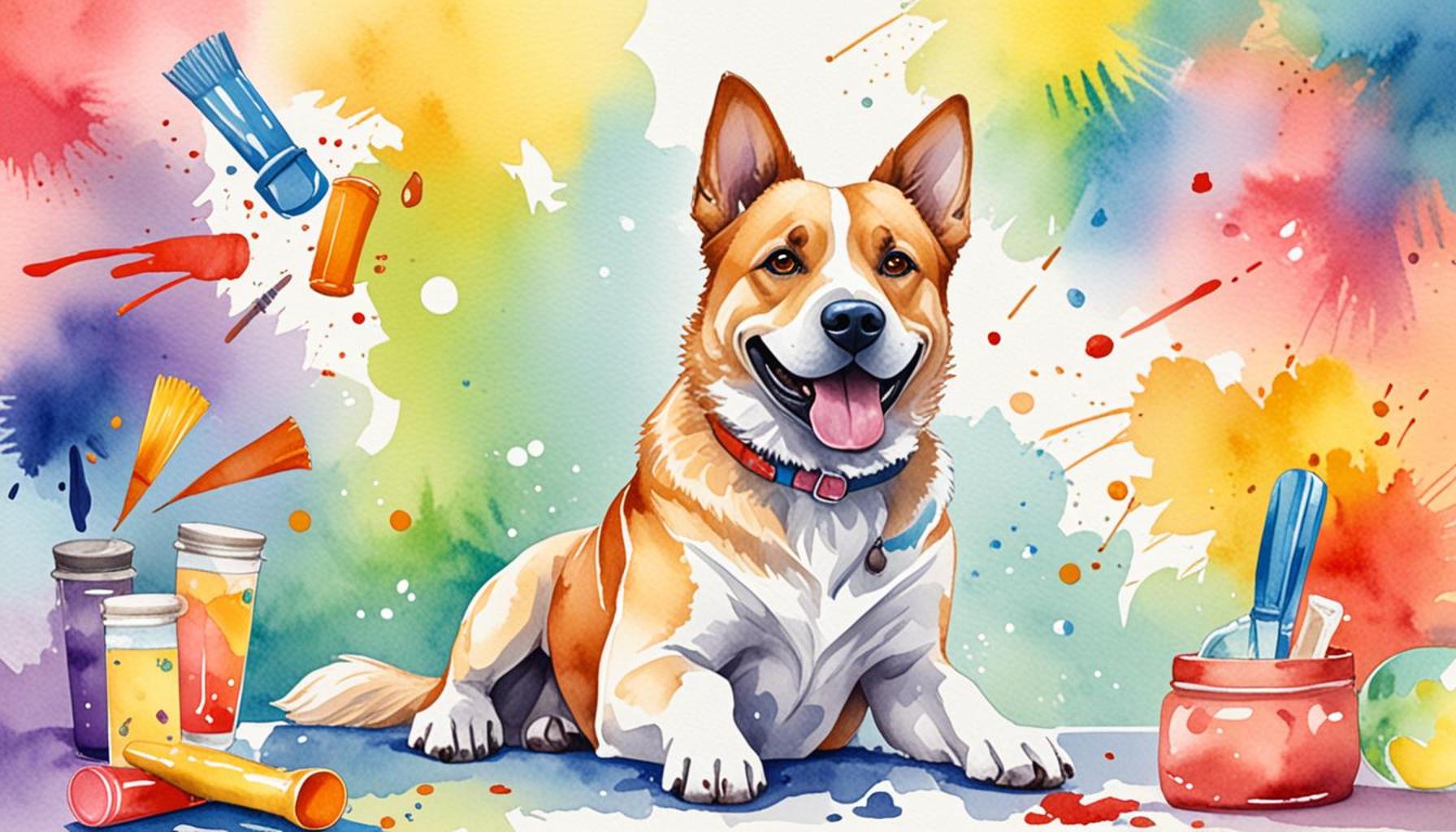Utilizing Scent Work as a Training Technique for Dogs

Unleashing Your Dog’s Instincts through Scent Work
Dogs have an extraordinary sense of smell that can be harnessed for training and stimulation. This innate ability allows dogs to engage in fulfilling activities that strengthen their bond with their human companions. Utilizing scent work not only enhances obedience but also provides mental enrichment for our furry friends. By tapping into their powerful olfactory senses, we can open up a world of opportunities for both training and play.
Here are a few impactful benefits of incorporating scent work into your dog’s training regimen:
- Enhances Focus: Scent work requires concentration, promoting better focus during training sessions. By teaching dogs to focus on a specific scent, owners can help them filter out distractions in their environment, resulting in improved overall obedience.
- Boosts Confidence: Successfully locating scents can significantly boost a dog’s self-esteem. When dogs successfully find a hidden toy or treat through scent, it reinforces their natural instincts and makes them feel accomplished.
- Strengthens Bond: This interactive method fosters cooperation and trust between dog and handler. Through shared experiences in scent work, owners can communicate more effectively with their dogs, facilitating a deeper emotional connection.
Engaging your dog in scent work can lead to numerous real-world applications, showcasing the versatility of this skill. From search and rescue missions to therapy tasks, dogs are increasingly taking on significant roles benefitting society. You may find your dog excelling in activities such as:
- Tracking: Following a specific scent trail over varied terrain involves not just sniffing, but also interpreting and responding to environmental cues. Many search and rescue teams utilize dogs trained in tracking to find lost persons.
- Detection: Dogs are often employed in law enforcement for locating specific items or substances, such as narcotics or explosives, due to their powerful olfactory senses. This aspect of scent work highlights their critical role in maintaining public safety.
- Tricks and Games: Interactive scent-based games are not only fun, but they also enhance mental engagement. Simple activities, like hiding treats in your home and encouraging your dog to find them, can provide hours of entertainment while honing their scenting skills.
As you delve deeper into the world of scent work, you’ll uncover various techniques and methods to maximize your dog’s natural abilities. Courses and workshops dedicated to scent work can be found across the United States, providing opportunities for learning and interaction. The possibilities are endless, paving the way for an exciting adventure that both you and your dog can enjoy together, embarking on a journey that taps into your dog’s primal instincts while strengthening your relationship.
LEARN MORE: Click here for insights on pet health

Engaging Your Dog’s Natural Abilities through Innovative Techniques
Utilizing scent work as a training technique for dogs is not just an entertaining pastime; it is also a deeply enriching experience that taps into dogs’ inherent skills. Every breed possesses unique scent abilities, which can be developed and refined through purposeful training and engaging activities. Embracing your dog’s natural instincts can lead to both behavioral improvements and increased happiness.
One of the foundational exercises in scent work is the marker training approach. This method uses a distinct sound, such as a clicker, to signal the moment a dog successfully identifies a scent. By associating the sound with a reward, such as a treat or affection, dogs quickly learn to focus on their olfactory tasks. This technique minimizes confusion and motivates your dog to consistently perform desired behaviors. Over time, clicker training can be expanded to include more complex scent identification challenges.
Training can also be organized into structured activities. Here are a few popular methods to get started:
- The Hide-and-Seek Game: Place a few treats or toys with a distinct scent around your home or yard. As your dog searches for them, they practice their sniffing skills while enhancing their search techniques. This game can be easily adjusted in difficulty by either varying the number of items or hiding them in more challenging locations.
- Scent Discrimination Exercises: Prepare a series of containers, each with a different scent (e.g., herbs, spices, or specific dog treats). Have your dog identify the target scent among the others, rewarding them when they successfully select the correct one. This activity sharpens their ability to differentiate between various odors and improves focus.
- Complex Tracking Exercises: For those looking to take scent training to the next level, tracking exercises can be particularly rewarding. Start with a basic trail of scent left by a favorite toy or treat and gradually increase the complexity by incorporating turns and varying terrains. This not only keeps your dog engaged but also challenges their cognitive and physical skills.
Incorporating scent work into your dog’s life doesn’t have to be constrained to formal training sessions. Everyday walks can transform into scent exploration adventures. Allowing your dog to stop, sniff, and investigate their surroundings enriches their experience and can alleviate behavioral issues stemming from boredom.
Moreover, scent work isn’t solely beneficial for working dogs; it significantly enhances the lives of average household pets as well. By engaging in such activities, owners can prevent anxiety and destructive behaviors often associated with excess energy or lack of stimulation. In this way, scent work serves not only as a training tool but also as a valuable means of promoting emotional well-being in dogs.
As you explore the rewarding world of scent work, remember that the journey is just as important as the destination. The trust and rapport built through these activities can lead to a more fulfilling relationship with your canine companion, ultimately showcasing the beauty of dog-human partnership.
| Advantages | Details |
|---|---|
| Enhanced Focus | Scent work encourages dogs to concentrate, improving their overall obedience and responsiveness. |
| Mental Stimulation | Engaging a dog’s sense of smell provides enriching challenges, combating boredom and reducing undesired behaviors. |
| Confidence Building | Positive experiences during scent work can boost a dog’s self-esteem and create a bond with the handler. |
| Versatile Learning | Scent work can be adapted for all dog breeds and ages, making it accessible for every canine companion. |
Utilizing scent work as a training technique for dogs not only taps into their innate capabilities but also fosters a variety of mental and emotional benefits. By leveraging a dog’s strongest sense, trainers can create stimulating exercises that elevate both engagement and learning potential. The strategic incorporation of scent into training sessions offers innumerable opportunities to not only teach commands but also to reinforce positive behaviors, channeling energy productively. Additionally, scent work can play a crucial role in addressing behavioral problems. By letting dogs focus on a task that excites them, it diminishes instances of destructive behavior often linked to boredom or anxiety. This technique opens up avenues for creative problem-solving and enhances the owner-dog relationship through shared experiences. As the dog learns to associate scents with specific tasks, it drives a deeper understanding and appreciation for training sessions, leading to a more harmonious coexistence.
LEARN MORE: Click here to find out about parasite prevention
Expanding the Scope of Scent Work: Beyond Basic Exercises
As you delve deeper into scent work as a training technique for dogs, it becomes evident that this engaging activity encompasses a wide range of applications, making it ideal not only for personal enrichment but also for practical purposes. Many pet owners may not realize the extensive benefits of scent work associated with enhancing a dog’s problem-solving skills and cognitive ability. This form of training can serve as an excellent tool for addressing specific behavioral issues or refining particular skills.
One significant aspect of scent work is its application in therapeutic contexts. For example, search and rescue organizations often utilize dogs’ incredible olfactory capabilities to locate missing persons. Training techniques adopted in these settings can often be adapted for everyday use, allowing pet owners to cultivate similar skills in their dogs. Consequently, enhancing your dog’s search abilities helps establish a high level of trust while fostering a sense of accomplishment for both the animal and the owner.
For instance, another advanced exercise called the “Article Search” can help develop a dog’s natural search instinct further. In this activity, specific items—such as a piece of clothing or personal belongings from an individual—are introduced to your dog. The goal is for the dog to locate these items by scent, mimicking the professional search and rescue exercises showcased in popular media, thereby fostering excitement and motivation in the process.
Moreover, scent work serves as an exceptional outlet for working breeds, which tend to have high energy levels. Alongside traditional activity, engaging these dogs in scent work can help satisfy their instincts and prevent behavioral issues, such as excessive barking or destructive chewing. Frequently highlight successes through a judicious combination of praise, treats, and consistent reinforcement methods keeps them engaged and mentally stimulated.
- Agility Training: Pair scent work with agility challenges to create a comprehensive workout. Incorporating obstacles while your dog searches for hidden scents improves their physical fitness and reinforces their problem-solving abilities. This combination allows dogs to exercise both their body and mind, leading to a more balanced and satisfied pet.
- Cooperative Games: Involve your family or other dogs in cooperative scent games. These interactive pursuits foster positive socialization experiences, enhancing your dog’s communication skills and strengthening bonds with both humans and fellow canines. Play “find the toy” with multiple participants, rewarding your dog when they successfully locate an item amidst the group.
- Competitive Scent Sports: For those seeking to immerse themselves in the world of scent work, consider exploring competitive scent sports. Organizations such as the National Association of Canine Scent Work (NACSW) and American Kennel Club (AKC) host events, often welcoming participants at various experience levels. Joining these competitions can motivate both you and your dog to elevate your training experience and form a tight-knit community of scent work enthusiasts.
Additionally, understanding the different types of scents that can be utilized is crucial in maximizing the effectiveness of scent work training. Commonly used scents in training can include food, various essential oils, and even human scents. By introducing your dog to these different smells, you can enhance their scent identification skills, catering to their particular preferences and optimizing their training experience.
Ultimately, as you and your dog embark on this exciting scent work journey, embrace the myriad of opportunities available. Each scent-based activity not only contributes to your dog’s training but builds a solid foundation for a strong, trusting relationship between you and your beloved furry friend.
LEARN MORE: Click here for insights on pet adoption organizations
Conclusion: The Transformative Power of Scent Work
In conclusion, utilizing scent work as a training technique for dogs is not merely a form of entertainment; it is a transformative experience for both pets and their owners. As the rich tapestry of activities outlined demonstrates, scent work fosters essential skills such as problem-solving, focus, and trust, while significantly boosting a dog’s cognitive abilities. These engaging exercises offer your canine companion mental stimulation that is vital for their overall health and happiness.
Moreover, by incorporating advanced scent work exercises into your training regimen, you can address specific behavioral challenges, channel excess energy, and facilitate a deeper bond between you and your dog. The adaptability of scent work—ranging from casual home activities to competitive scent sports—ensures there is something for every dog and handler alike. The potential therapeutic applications, as seen in search and rescue scenarios, further emphasize the practical value of this technique.
As you explore the various dimensions of scent work, remember that each nose-activated adventure opens up new avenues for learning, discovery, and fun. By embracing this unique approach, you not only enhance your dog’s skills but also cultivate an enriching environment that meets their natural instincts. So, take a deep breath, grab your favorite treats, and embark on this informative journey into the world of scent work. The rewards are bound to be as vast as your dog’s sense of smell.


